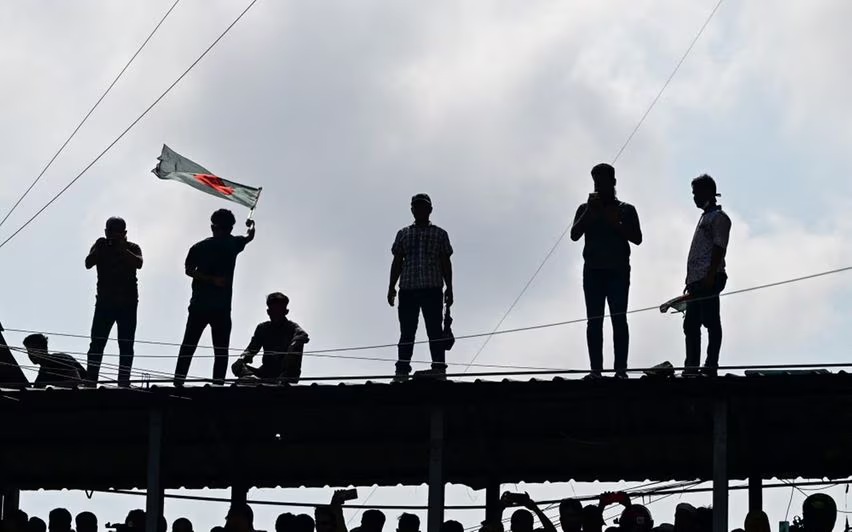
In a dramatic turn of events, Bangladesh’s Prime Minister Sheikh Hasina resigned on Monday, marking the end of her 15-year tenure in power. The resignation came after weeks of escalating protests, initially sparked by students demanding the abolition of a controversial quota system for government jobs. The peaceful demonstrations quickly grew into a broader movement challenging Hasina’s leadership and her ruling Awami League party, culminating in unprecedented civil unrest.
The unrest began when university students took to the streets to protest a quota system they claimed was unfair and discriminatory. The system reserved a significant percentage of government jobs for the descendants of veterans from the 1971 war of independence, members of disadvantaged communities, and other groups favored by the ruling party. Students argued that this system hampered their employment prospects, as it undermined merit-based appointments.
What began as peaceful protests turned violent when police responded with force. The crackdown left nearly 300 people dead since mid-July and intensified public outrage. Clashes in the capital, Dhaka, and other major cities resulted in widespread property damage, injuries, and deaths. The violence reached a peak when thousands of demonstrators stormed Hasina’s official residence and other significant buildings, demanding her resignation.
Facing insurmountable pressure, Sheikh Hasina resigned and fled the country on a military helicopter, accompanied by her sister. The departure of the embattled leader has thrown Bangladesh into a state of uncertainty. The military, under the leadership of General Waker-uz-Zamam, has taken temporary control, promising to restore order and investigate the crackdown that led to the bloodshed.
In a televised address, General Waker-uz-Zamam reassured the nation that the military would investigate the killings and work with opposition leaders to form an interim government. The country’s figurehead president, Mohammed Shahabuddin, announced the dissolution of Parliament and the formation of a national government, paving the way for fresh elections.
The news of Hasina’s resignation was met with mixed reactions. While many celebrated the end of her rule, others continued to protest, demanding justice for those killed during the clashes and significant political reforms. Protesters ransacked government buildings, torched offices, and attacked symbols of Hasina’s administration. Despite the chaos, many demonstrations remained peaceful, with large crowds gathering outside the presidential palace.
The resignation of Sheikh Hasina, who has been a dominant figure in Bangladeshi politics, marks a significant shift for the nation. Her departure has raised concerns about the future stability of the country, which faces numerous challenges, including high unemployment, corruption, and climate change. The military’s involvement in the transition of power has also sparked fears of potential authoritarianism, given Bangladesh’s history of military coups
The protests have underscored the deep economic distress in Bangladesh, where the job market is saturated, and opportunities for young graduates are scarce. The country’s economic woes are compounded by declining exports and dwindling foreign exchange reserves. The contentious quota system, which was a focal point of the protests, highlighted broader issues of inequality and governance that the new interim government will need to address.
Internationally, Hasina’s resignation has drawn varied responses. While her close ties with India and China may influence regional dynamics, her strained relations with Western nations over human rights concerns could impact Bangladesh’s foreign policy. As the country navigates this period of transition, the international community will be watching closely to see how the interim government and future elections shape Bangladesh’s political landscape.
The resignation of Sheikh Hasina is a pivotal moment in Bangladesh’s history. The ongoing protests and the formation of an interim government signal a potential shift towards addressing long-standing issues of governance and inequality. However, the path to stability and reform will be challenging, requiring careful navigation by both political leaders and the military. The coming months will be crucial in determining whether Bangladesh can achieve a peaceful and democratic resolution to its current crisis.